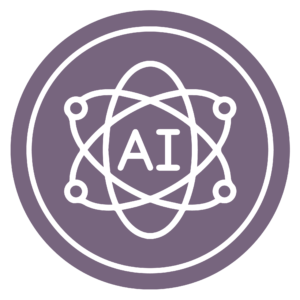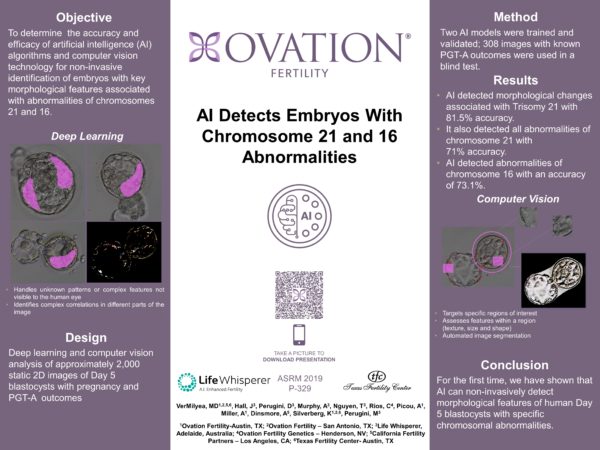OBJECTIVE: To examine whether Artificial Intelligence (AI) algorithms and computer vision technology can non-invasively identify embryos with key morphological features associated with abnormalities of chromosome 21 and 16.
DESIGN: AI analysis of embryo images in private reproductive technology programs.
MATERIALS AND METHODS: Approximately 2,000 static 2D images of Day 5 blastocysts with related pregnancy and pre-implantation genetic testing for aneuploidy (PGT-A) outcomes were assessed. Images were divided into three groups: training, validation, and blind test sets. Two AI models were trained, validated, and tested on embryo images by a further blind set test of 461 images with known PGT-A outcomes.
RESULTS: Our results show a high level of accuracy with the use of AI in detecting embryological morphological changes associated with additions to chromosome 21 or an additional full copy of the chromosome. A blind data set of 54 images achieved an accuracy of 81.5%. To expand the model to include all abnormalities of chromosome 21, we achieved an accuracy of 71% from 214 images. This reduction in accuracy is most likely the result of increased morphological variability between embryos with different (broader) abnormalities in chromosome 21. Using the same methodology, an accuracy of 73.1% was obtained when we were able to determine abnormalities of chromosome 16 in 214 images.
CONCLUSIONS: Embryonic chromosomal abnormalities are known to lead to implantation failure, pregnancy loss, severe chromosomal diseases (e.g. Down and ATR-16 syndromes) and have recently been associated with developmental disorders including Autism1. One of the major limitations of PGT-A analysis by traditional genetic analysis is the presence of chromosomal mosaicism within the developing embryo2. Recent advances in non-invasive embryo ploidy determination by either morphokinetic analysis by time-lapse imagery3 or cell free DNA isolation from either spent conditioned culture medium4 or blastocoel fluid5 have shown promise, but concordance studies have shown otherwise6. This study presents, for the first time, that AI can non-invasively determine whether certain morphological features of a Day 5 blastocyst are associated with specific chromosomal abnormalities of human embryos. Additional studies and analyses are under way to increase specificity and explore other chromosomal abnormalities by including larger data sets

